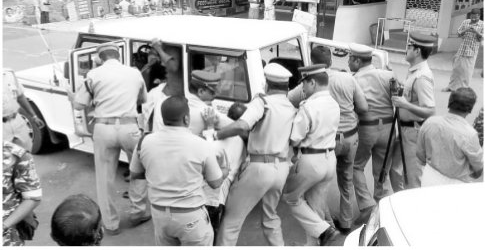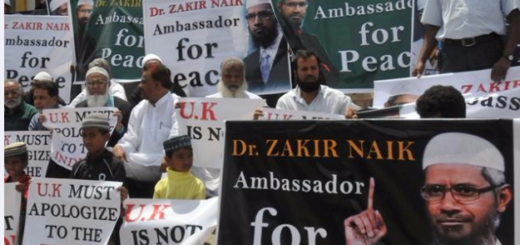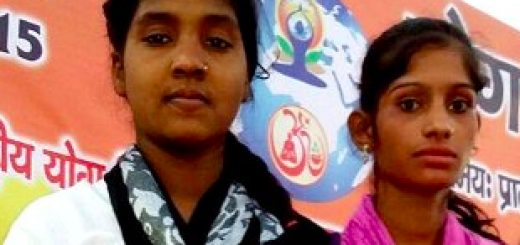Jisha rape & murder seen from NY – How did Kerala churches react? Asks a Newyorker

Kerala must stop looking at all migrant workers with suspicion – Srinivasa Prasad May 7, 2016
(Note: My friend Githanjali Sudhir in NY,who sent this article is hell-shocked by the Jisha rape and murder as it was far worse than the Nirbhaya case in Delhi, and so the last thing he could have expected in a state rated to be very enlightened was its cold, indifferent reaction. So he asks: “What could have been the response of the Kerala Churches with so much resousrces in men and material?” My answer is it was next to nothing because here we have only a church of rituals and road shows, not one concerned with the Lazaruses around who are in dire need of foot-washing service. Sudhir finds “civil and political arms in the State of Kerala busy finding a solution”. It is because they need their support (votes) to survive. Churches survive on the blind faith of an unthinking worshipers, they don’t need their votes. Sudhir goes on to advise: “Jisha may not be "catholic"! But Christians ought to worry about men and women – beyond church's compound walls and fences. Jisha is a Malayalaee, woman, India,  part of our humanity.How shall we conscientize our many brothers and sisters in our homefront?” These questions do not arise here because what Kerala has is the dead shell of Christianity without its living substance. james kottoor, editor)
part of our humanity.How shall we conscientize our many brothers and sisters in our homefront?” These questions do not arise here because what Kerala has is the dead shell of Christianity without its living substance. james kottoor, editor)
The rape and murder of law student Jisha is reported from Iringol, a village in Kerala’s Ernakulam district. Immediate suspicion falls on migrant labourers.
4 May: Kailas Jyothy Behra, a migrant worker from Assam, is beaten to death at Chiravamuttam village in the neighbouring Kottayam district. Local media says anger over the possible involvement of migrants in Jisha’s rape may have provoked the lynching.
Police have indeed rounded up a few migrant labourers for questioning in the Jisha case, and their involvement in the ghastly rape and murder may or may not be conclusively proved. Even if the police finally find a migrant link to the rape, it should surprise nobody, because only five kilometres from Jisha’s village is Perumbavoor, a town known as “mini north India”. It has nearly a lakh of migrants, thrice as much as the local population.
But what the Malayalee intelligentsia and social activists find repugnant is that, each time a burglary or a murder is reported anywhere in Kerala, the police look for a “migrant worker angle” and sections of people convince themselves that it’s an outside job—till a local is caught.
The ‘bais’—corrupted form of ‘bhais’ or brothers—as the migrants are called, have been indeed involved in a few gruesome crimes in the past. The latest was the brutal triple murder of an elderly couple and their son allegedly by a worker from Uttar Pradesh on 16 May last year at Mooleparambu in Kottayam district. The couple had hired him to work in their dry cleaning centre. The police said he had stabbed and electrocuted the victims before pouring acid on them.
Kerala has an estimated 30 lakh workers from West Bengal, Bihar, Chhatisgarh, Assam, Uttar Pradesh, Odisha and other north-eastern states. Their number is the equivalent of almost 10 percent of the state’s population.
Expecting each one of this vast chunk of people to be an embodiment of flawless morality is as absurd as lumping the entire lot of them as hardened criminals, just because of a few rotten apples.
Nor is it out of the ordinary that there have been crimes against migrants. Only four months ago, in a murder that nearly turned into an inter-state issue, a worker from a village near Bissam Cuttack in Odisha’s Rayagada district was killed by a bakery owner in the Kerala capital Thiruvananthapuram. And there have been migrants perpetrating crimes against fellow migrants.
Tension between locals and migrants is not uncommon anywhere in the world. In most cases, the friction is caused by the fear that migrants “steal jobs” from locals.
But in Kerala’s case, the state needs them as much as they need the jobs. They have not come to steal jobs: they have arrived to fill a vacuum caused by the exodus of Malayalee workers to the Gulf countries. The migrants get jobs in Kerala, either because locals are not available or are unwilling to do the work. And in Kerala, they get more money: upwards of Rs 500 a day, compared with less than Rs 100 a day back home. Initially, the outsiders took up jobs only in construction and plantations, but now there is no sector in Kerala without migrant workers.
As the irony goes, the number of Malayalees working in the Gulf is roughly the same as the number of migrants coming to Kerala from other states. The outsiders who work in Kerala are estimated to send home nearly Rs 20,000 crore, while Malayalees employed in the Gulf remit about Rs 1 lakh crore.
According to the Kerala Development Report, put together by the Centre for Development Studies (CDS), migrants flood the state not only because they get higher wages here and locals are unavailable, but also because locals, even if available, are “reluctant to do hard, physical work”. Some, it said, are supported by remittances from abroad and can stay without work for long periods.
Says the report: “…all these have engendered the era of replacement migration in Kerala. For the in-migrant workers, Kerala is, for all practical purposes their promised land, the Gulf. Are they to blame for this intrusion? Nor is it an unwelcome development in our federal economy.”There is no doubt that if the three million migrant workers desert Kerala, hundreds or thousands of businesses would have to shut shop or curtail operations.
It’s a question of attitude, said Fr PA Chacko of the ‘Jesuits in Social Action’, who has been working for the welfare of migrants in Kerala. He said in a 2014 article, “If one or two labourers are caught for some alleged criminal acts, we tend to put blanket blame on all by broadcasting that all these migrant workers are criminal elements. We forget that this God’s own country has thousands of local people incarcerated for alleged crimes. That does not mean all Malayalees are criminals. We extract the energy of these ‘Bais’ as our ‘pound of flesh’. But when it comes to treating them as human persons, who contribute to our wealth creation, should we not honestly acknowledge their contribution and treat them with fair mindedness and human respect?”
Instead of keeping the migrants under the scanner each time a rape is committed, Kerala’s government and society must find ways to make the state a safer place for women to live in. The statistics being bandied about in the media amount to this: In 2015, every 43 minutes saw a new crime against a woman in the state. And, on average, a woman was raped almost every six hours. Few migrants, if any, have anything to do with this astounding crime rate.
The assembly election is ten days away, and political parties, instead of accusing the Oommen Chandy government and the police of inaction in the Jisha case, must come forward with ideas on how to make things better.Divya P, a young journalist working for Malayala Manorama’s English news portal, writes, “Anyone walking with their eyes and ears open in Kerala and not awed by the natural beauty around, would easily witness the daily abuse and humiliation women suffer on the streets and roads in God’s Own Country."
















